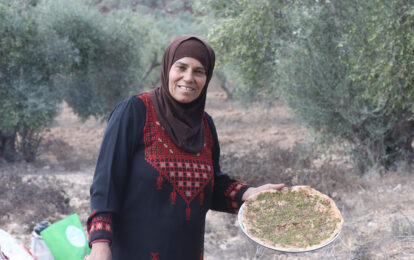ORFC 2026 8 – 9 Jan
ORFC 2026 8 – 9 Jan
The garden is often seen as a refuge, a place to forget worldly cares, removed from the real life that lies outside. But when we get our hands in the earth we connect with the cycle of life in nature, through which destruction and decay are followed by regrowth and renewal. Sue Stuart-Smith and Jonny Bruce will discuss how gardening can answer deep existential needs of self and society.
In order to address the climate and nature crises, we need to make better use of our land, and the agricultural sector has a major role to play. Making the best use of our land requires informed decision-making around the trade-offs, benefits and economic viability of different land uses in the context of wider UK landscapes.
In Eating to Extinction, Dan Saladino contends that by any measure hunting and gathering has been our most successful lifestyle to date. Whilst it is rare to find people existing entirely by this means today, the Hadza tribe is one such example and amongst them modern diseases are almost nonexistent. Herbalist Mo Wilde lived for a year entirely on free wild food foraged in Scotland, documenting her findings in The Wilderness Cure. Defra recently consulted…
A chance for landowners, farmers and market gardeners to hear from those who have made the conversion of all or part of their farm to CSA; how they did it and what the pitfalls and benefits have been; and ask their own questions about conversion. Hear from four speakers about their different journeys to CSA: the opportunities and challenges, and why they chose to make the shift.
Every landscape holds a thousand secrets; of the damage done to it, of those who came before us and of the subtle energies which run through it, similar to the acupuncture meridians in a human body. None of these energies can be seen with the human eye but they all impact on the land, a phenomenon sometimes referred to as "geopathic stress”. The health, fertility and yield in cows has been shown to be affected…
Soil scientist, Dr. Karen Vancampenhout, tells us we need to stop thinking about soil as ‘brown stuff’. Although many of us engage with soil on a daily basis, sometimes we forget how important it is to stop for a moment and really appreciate its beauty. Participants will be invited to explore their personal relationship with soil, using mindful and sensory engagement, and considering how we connect with the systems underfoot that underpin and anchor our…
Palestinian farmer, Doha Asous, will speak about the challenges of farming under occupation. She will explain why, in the face of aggression and land grabs by illegal settlers, it’s even more important to tend her land and devote her time to a farming livelihood. Doha farms using the traditional techniques of her ancestors. For over a decade, she has hosted international volunteers who come to support her and other farmers to bring their olive harvest…

Other species are an essential workforce in the ongoing regulation of the Earth's global climate and regional weather systems. Plants, microbes, fungi, insects, and animals all have a role to play in local and global temperature regulation, cloud formation, rainfall, wind patterns, and the prevention of flooding, drought, and wildfires. Humans have overlooked this workforce in our historical land management, which has intensified climate change and its local effects. It's time to recognize that we…
Over the long arc of history, humans have eaten extraordinarily diverse diets: thousands of varieties of cultivated crops and wild foods. There is a rich bank of human and culinary history, as well as an important resource for food security and climate resilience, in the world’s rarest foods: from wild honey harvested by the Hadza in Tanzania to windswept wheat on Orkney. These foods could hold the key to our food future, but they are…